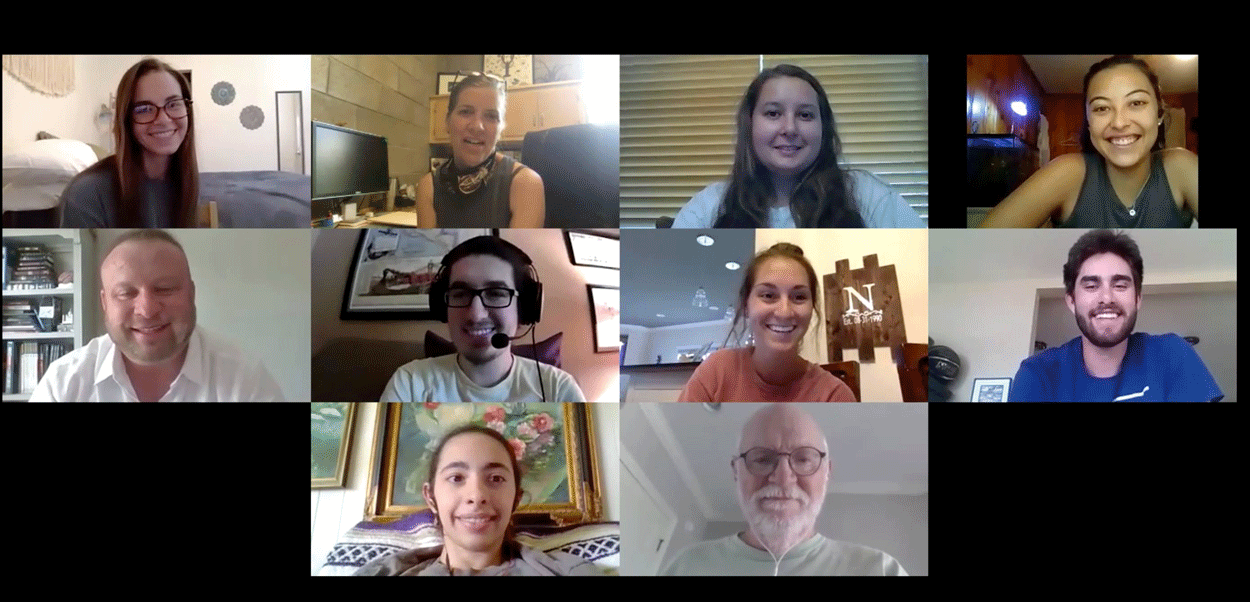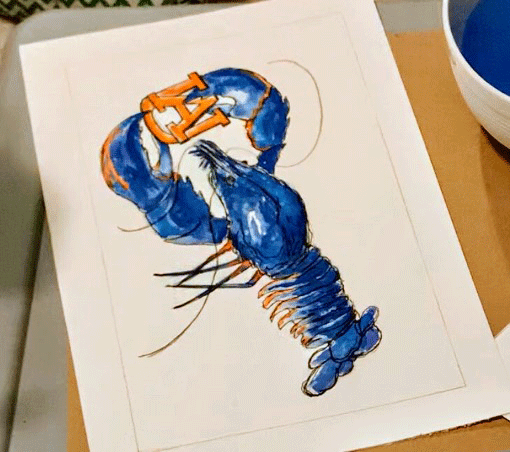(August 05, 2020) --

University Programs’ 2020 Summer Session is history, but not before recording several firsts in the history books for both faculty and students. For starters, all summer session courses were taught virtually out of an abundance of caution due to the COVID-19 pandemic.
Dr. Ruth H. Carmichael, Dauphin Island Sea Lab faculty and Professor of Marine Sciences at the University of South Alabama, taught Marine Invertebrate Zoology. With students on campus, she would have taken students in-person to nearby state parks and the habitats on Dauphin Island to see the variety of invertebrates and where they live.
This summer, however, she still brought the students on the field trips. Only this time, the students went along for the ride on Facebook live. She also brought the students into the lab via Zoom.
“The biggest challenge is not being able to see the students in person and interact with a more personal connection,” Carmichael said. “It’s more challenging for me to read faces to detect questions or misunderstandings.”
She adds, “It’s also more challenging to draw out the shy students and encourage class-wide interaction.”
The learning curve is adjusting, and Carmichael feels it will get easier with practice for both faculty and students.
“Faculty are balancing the mechanics of how to adapt the courses and how to use the technology alongside the challenges of the different personal interactions. I really think there is a lot of capability and opportunity within the virtual setting, we just have to discover and master those possibilities,” Carmichael explains.
She outfitted her technology for the class with a wireless mic, an underwater drone, and benefitted from two newly purchased camera scopes for University Programs. While the field trips presented the toughest challenge virtually and with the learning curve of technology, she is encouraged.

“I'm seeing some incredible products in ways I didn't know would work such as virtual lab notebooks,” Carmichael said. “I wish the students were here, but I am confident we can give them the best possible alternative.”
Along with the virtual lab notebooks, students made mini-movies about some cool invertebrate papers they found. The movies would usually be made in groups.
Despite the changes, the students seemed to enjoy the class as well.
“It was good! I am sure that it doesn’t compare to having it in person, but I still feel like I learned a lot.” Sarah Leinbach, a graduate student at Auburn, said.
“I’d have honestly rather gone on the field trips, but I was able to learn more in Biology outside the scope of my path so far. My kids also snuck in and listened to nearly every lecture from Dr.Carmichael and Dr. Sprinkle.” Aaron Haycraft said.
Haycraft is a Biology (Pre-Med) with marine science and chemistry minors at the University of Mobile.
The virtual classroom will be a big part of the coming year for all ages.
Carmichael offers this advice, “Please be patient and go with the flow. Be understanding that instructors are doing their best in what is very likely an entirely new setting for most teachers and students. Try to find the benefits and opportunities of the new platforms rather than focusing on what cannot be done.”